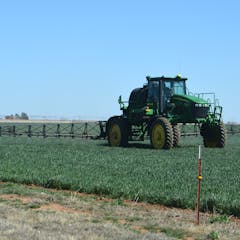
Articles on GM food
Displaying 1 - 20 of 41 articles

Recent study investigated how fast genes are being transferred between distantly related species.

Field trials of genetically edited crop plants are to be allowed in England under new government proposals.

A new biotech regulation allows companies to self-police and decide which crops should be regulated. The new rule is likely to amplify greater distrust of GM crops.

Nigeria recently approved the world’s first GM cowpea, which provides full protection against the pod-borer Maruca, a major problem for this important crop.

With Gottlieb’s departure from the FDA imminent, what should we expect from the FDA? How is it likely to regulate the still controversial genetically engineered foods?

The global food system has been operating in post-truth mode for decades.

Informing people about genetically modified food means more than dumping more facts on them.

New research pinpoints the genes that could counteract decades of bland breeding.

Lawmakers reach a deal on national labeling rules for foods that contain GMOs, but if passed, it won’t give consumers what research has shown consumers want.

The Senate has just reached an agreement for a national system to label foods with genetically modified ingredients. What do consumers actually want from GM food labeling?

Ensuring the next 10 billion people are fed fairly will require a radical restructuring of global agri-tech.

Science and technology has always helped us feed the world. GM has more to offer, if we let it.

Everything from domesticated carrots to glow-in-the-dark tobacco fits somewhere on the spectrum. ‘Banning GM’ isn’t a simple yes-no decision.

Scientists are developing GM crops that don’t need pesticides and other chemicals to help them grow. Isn’t that what organic farmers want too?

What explains the huge gap between US and European consumers on GMO foods? A short history helps explain.

Statewide survey in Vermont finds GM food labels don’t scare consumers or indicate an inferior product. In some cases, labels built trust in the technology.

Major survey shows how attitudes towards GM food in Europe depend on gender, background and profession.

It’s easy to poke holes in UKIP’s plans for agriculture.

European countries can stop growing genetically modified crops, but many of their cows are still fed with imported GM.

MPs call for a revamp of GM regulations, after finding “no greater inherent risk” with GM crops compared to conventional ones.
